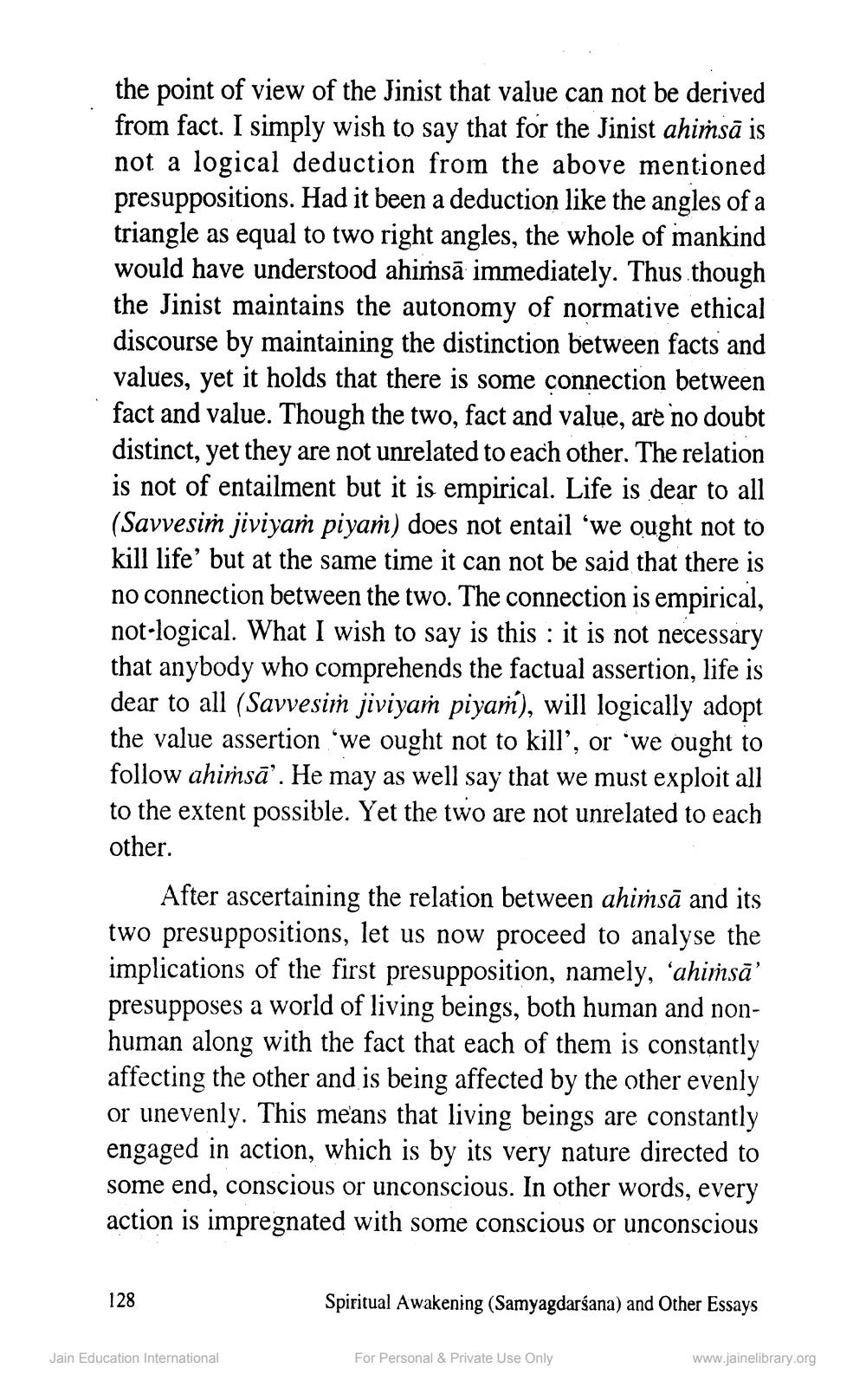________________
the point of view of the Jinist that value can not be derived from fact. I simply wish to say that for the Jinist ahiṁsā is not a logical deduction from the above mentioned presuppositions. Had it been a deduction like the angles of a triangle as equal to two right angles, the whole of mankind would have understood ahiṁsā immediately. Thus though the Jinist maintains the autonomy of normative ethical discourse by maintaining the distinction between facts and values, yet it holds that there is some connection between fact and value. Though the two, fact and value, are no doubt distinct, yet they are not unrelated to each other. The relation is not of entailment but it is empirical. Life is dear to all (Savvesim jiviyaṁ piyaṁ) does not entail ‘we ought not to kill life' but at the same time it can not be said that there is no connection between the two. The connection is empirical, not-logical. What I wish to say is this : it is not necessary that anybody who comprehends the factual assertion, life is dear to all (Savvesim jiviyaṁ piyam), will logically adopt the value assertion 'we ought not to kill', or 'we ought to follow ahirsā'. He may as well say that we must exploit all to the extent possible. Yet the two are not unrelated to each other.
After ascertaining the relation between ahimsā and its two presuppositions, let us now proceed to analyse the implications of the first presupposition, namely, ‘ahimsā' presupposes a world of living beings, both human and nonhuman along with the fact that each of them is constantly affecting the other and is being affected by the other evenly or unevenly. This means that living beings are constantly engaged in action, which is by its very nature directed to some end, conscious or unconscious. In other words, every action is impregnated with some conscious or unconscious
128
Spiritual Awakening (Samyagdarśana) and Other Essays
Jain Education International
For Personal & Private Use Only
www.jainelibrary.org




